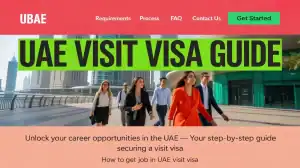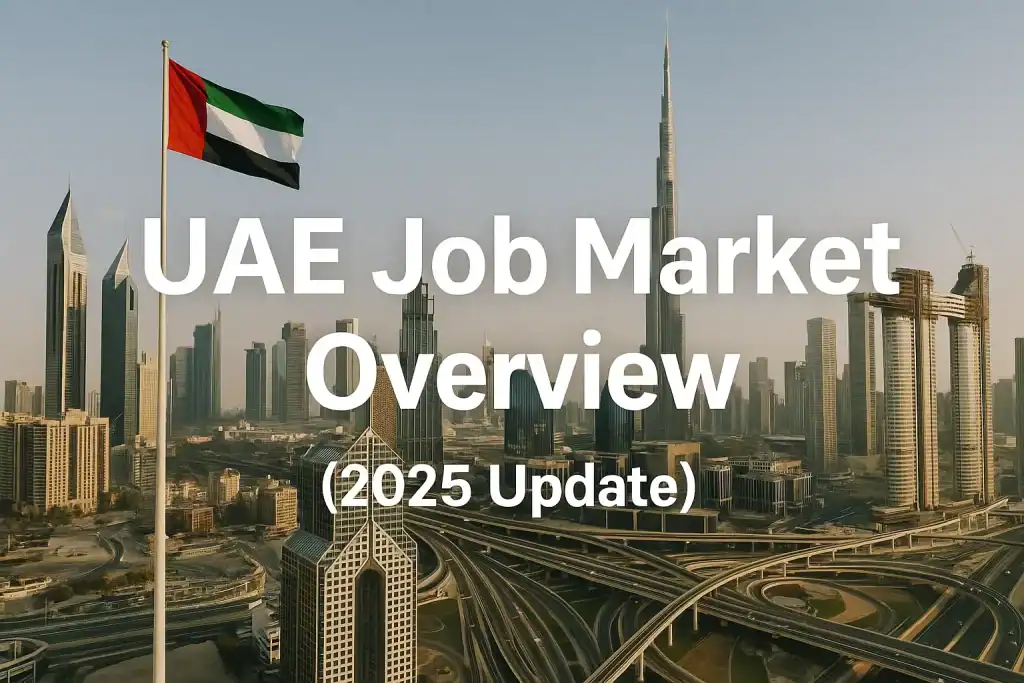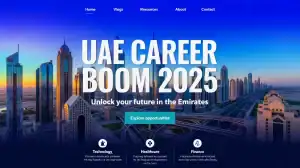A Region in Transition
The Gulf Cooperation Council (GCC) countries—Saudi Arabia, United Arab Emirates, Qatar, Kuwait, Oman, and Bahrain—have undergone a monumental transformation in the last century. Once reliant on traditional industries like fishing, agriculture, and pearling, these nations reshaped their economies after the discovery of oil. However, the journey of employment in the GCC didn’t begin and end with oil. Over the decades, economic diversification, policy reforms, globalization, and digital innovation have each played a role in redefining the job landscape in the GCC. This blog explores the past, present, and future of GCC jobs, offering valuable insights into the trends shaping careers, workforce structures, and labor market expectations across the region.
The Oil Boom and the Birth of Modern Employment
The true shift in GCC employment began in the 1970s with the global oil boom. As crude oil became the lifeblood of the global economy, the GCC nations capitalized on their natural reserves, rapidly accumulating wealth. This sudden prosperity fueled massive investments in infrastructure, defense, education, and public services, creating a demand for labor across various levels. However, the existing local population was insufficient to meet the labor demand, both in quantity and specialization. Consequently, the region opened its doors to millions of foreign workers, primarily from South Asia, the Philippines, and Egypt. These workers took up roles ranging from construction and domestic services to technical and administrative positions in energy, transport, and banking. Meanwhile, GCC nationals gravitated towards public sector employment, which offered attractive salaries, generous benefits, minimal working hours, and lifelong job security. This preference created a labor market divided along national lines: expatriates dominated the private sector, while nationals enjoyed protected government jobs.
Shifting Gears: The Push Toward Economic Diversification
By the early 2000s, a growing realization emerged among GCC leadership that relying solely on oil was unsustainable. The volatility of oil prices, coupled with increasing global shifts toward renewable energy, prompted governments to seek diversified economic models. The resulting national transformation plans—such as Saudi Vision 2030, UAE Centennial 2071, Qatar National Vision 2030, and Oman Vision 2040—laid the foundation for a more balanced and inclusive labor market.
These blueprints aimed to develop sectors such as tourism, technology, renewable energy, logistics, finance, and education. Investment in non-oil industries also meant an urgent need for new talent, both local and foreign, in emerging fields. This gave rise to career opportunities in healthcare, hospitality, entertainment, fintech, AI, and e-commerce, reshaping the skills employers sought.
To support this shift, localization programs like Saudization, Emiratization, and Kuwaitization were introduced to encourage employers to hire more nationals. These programs offered incentives, training initiatives, and quotas, aiming to integrate locals into private-sector roles that were traditionally held by expats.
The Modern Workforce: Digitalization and Skill Gaps
One of the most transformative changes in the current GCC labor market is the rapid pace of digital transformation. Triggered further by the COVID-19 pandemic, sectors embraced remote work, online platforms, automation, and cloud-based services. This shift created a significant demand for digitally skilled professionals in fields like software development, cloud computing, data analysis, cybersecurity, and machine learning.
At the same time, the influx of global technologies has exposed a significant skills gap in the local labor force. While younger generations of nationals are increasingly educated, there is still a disconnect between academic qualifications and industry-ready skills. In response, governments and private institutions have launched vocational training programs, coding bootcamps, and scholarship initiatives to equip youth with relevant competencies.
The rise of freelancing and remote work visas in countries like the UAE also reflects the changing employment dynamics. Platforms for remote talent, digital nomads, and independent contractors are gradually taking shape, especially in areas like content creation, digital marketing, virtual assistance, and online teaching.
The Future of Jobs in the GCC: Vision 2030 and Beyond
As we look ahead, the future of work in the GCC will be shaped by national strategies that prioritize sustainability, innovation, and inclusion. Saudi Arabia’s NEOM project, a smart city initiative, aims to be a global hub for clean technology, biotech, and robotics. Similarly, Dubai’s push for smart governance and artificial intelligence, and Qatar’s investment in post-FIFA infrastructure, are set to create thousands of jobs in technology, logistics, real estate, and research. One key area of growth will be green jobs. As GCC nations aim to meet climate goals and ESG commitments, they are expanding their solar power plants, waste management systems, water desalination units, and sustainable building practices. Roles in environmental engineering, renewable energy auditing, and green consulting will see a major rise. Additionally, there is an increasing focus on female workforce participation. Saudi Arabia, for instance, has witnessed a historic rise in women joining the labor force in fields like banking, aviation, education, and IT. This trend is expected to continue as legal barriers reduce and private companies are encouraged to promote gender diversity.
Reimagining Expat Employment in the GCC
Despite growing nationalization efforts, expatriates will continue to play a vital role in the GCC workforce. However, the model is evolving. Rather than a volume-based approach to foreign labor, there is now a shift toward quality-driven immigration policies. GCC nations are introducing long-term residency options for high-skilled professionals, investors, and innovators.
The UAE Golden Visa, Saudi Premium Residency, and Qatar’s labor reforms are examples of initiatives aimed at attracting and retaining global talent. These new policies make it easier for professionals in sectors like healthcare, education, finance, and tech to settle, invest, and contribute long-term to the region’s growth.
Moreover, labor rights are improving. Reforms in Qatar and the UAE have introduced minimum wage standards, mobility rights, and better dispute resolution mechanisms. These changes reflect the region’s ambition to be seen not just as a lucrative place to work, but also as an equitable and modern employment destination.
Country-Specific Job Trends and Outlook
Each GCC nation is navigating its own employment journey. In the UAE, cities like Dubai and Abu Dhabi are leading job creation in real estate, fintech, renewable energy, and media. The post-Expo legacy has expanded opportunities in events, tourism, and business development.
Saudi Arabia, with its Vision 2030, is aggressively pursuing employment in mega-projects like The Line, Qiddiya, and Red Sea Development. Job creation is booming in entertainment, transport, tourism, and women-led industries. Riyadh is also emerging as a financial and tech hub, competing with Dubai.
In Qatar, the infrastructure boost from the 2022 FIFA World Cup has left a lasting legacy of employment in construction, tourism, logistics, and smart cities. The government continues to invest in education, research, and healthcare, driving steady demand for skilled labor.
Oman, Bahrain, and Kuwait, though smaller in size, are also pursuing diversification. Their focus is more on SME development, IT services, vocational training, and healthcare expansion. Oman’s Vision 2040 seeks to increase youth employment and entrepreneurship through microfinance and digital economy initiatives.
Challenges and Opportunities in the GCC Labor Market
While the GCC offers immense opportunity, it also faces significant challenges. One pressing issue is youth unemployment among nationals. Despite government efforts, many young people struggle to find jobs that match their qualifications and aspirations. Cultural expectations around job types, reluctance to join labor-intensive roles, and preference for government employment remain hurdles.
Another challenge is the skill mismatch. Many university graduates do not meet the requirements of high-growth sectors like AI, renewable energy, or logistics, leading to a reliance on foreign talent. Bridging this gap will require closer collaboration between educational institutions, government agencies, and employers.
Nonetheless, the region’s strategic vision, policy innovation, and investment appetite present unparalleled opportunities for growth. For job seekers—local or expat—those who align themselves with in-demand skills and emerging sectors will be well-positioned for a long-term, prosperous career in the GCC.
The Rise of In-Demand Jobs in the GCC for 2025 and Beyond
One of the most promising blog topics for today’s readers is the increasing demand for new-age skills across the GCC. As countries like Saudi Arabia, the UAE, and Qatar rapidly shift away from oil dependency, they’re investing heavily in fields such as artificial intelligence, data science, digital marketing, renewable energy, and healthcare. A detailed blog post on which jobs are expected to dominate the market through 2025 and beyond can help professionals, students, and job seekers align their career plans with these future-ready industries. Exploring which roles are most needed—like AI engineers, green building consultants, and logistics tech specialists—can offer highly targeted content that ranks well on search engines.
How Vision 2030 Is Reshaping Saudi Arabia’s Employment Landscape
Saudi Arabia’s Vision 2030 is one of the most ambitious transformation agendas in the Gulf region. It aims to diversify the economy, reduce unemployment, and build mega projects such as NEOM, Qiddiya, and the Red Sea Global initiative. A blog post covering how these projects are creating new employment opportunities in tourism, sports, entertainment, technology, and construction would be informative and engaging. Discussing job creation, the role of women in the workforce, and shifts in employer demand as a result of Vision 2030 can provide excellent long-form SEO content that resonates with both locals and expats.
Freelancing in the Gulf: The Gig Economy Gains Momentum
With the rise of remote work and freelancing worldwide, the GCC has started introducing new visa systems that support digital nomads and independent professionals. Countries like the UAE now offer freelance and remote work visas, allowing creatives, consultants, developers, and digital marketers to work without a traditional employer. Writing a blog on freelancing opportunities in the Gulf can include practical advice on how to register as a freelancer, which skills are most in demand, and what platforms or legal structures freelancers should know. This is a timely topic with high search potential, especially among young professionals.
UAE Golden Visa: Unlocking Long-Term Job Security
Another trending topic is the UAE Golden Visa, which offers long-term residency to investors, scientists, professionals, and exceptional students. A blog that explains how the Golden Visa works, who is eligible, and how it benefits job seekers and business owners can serve both informational and commercial SEO goals. You can also explore how this visa compares to other GCC residency programs, such as Saudi Arabia’s Premium Residency or Qatar’s recent immigration reforms. Highlighting the career stability and lifestyle freedom the Golden Visa offers will appeal to high-income expats and global talent.
Women in the GCC Workforce: Progress and Possibilities
The role of women in the GCC labor market has changed dramatically in the last decade, especially in countries like Saudi Arabia and the UAE. With reforms encouraging gender equality, many women are now working in aviation, finance, technology, education, and entrepreneurship. A blog on the rise of female participation in the Gulf economy can highlight policy changes, inspiring stories, and ongoing challenges. It’s a powerful, human-interest angle that fits well with current global conversations around inclusion and diversity in the workplace.
The Best Job Portals and Agencies for GCC Recruitment
Helping readers find employment is always valuable content. A detailed post reviewing the best GCC job portals—like Bayt.com, GulfTalent, NaukriGulf, Monster Gulf, and government e-recruitment platforms—can serve both new job seekers and long-time residents. You can break down each platform’s features, strengths, registration process, and niche focus. In addition, mentioning leading recruitment agencies in cities like Dubai, Riyadh, Doha, and Muscat can position your blog as a trusted guide in the regional job hunt.
Nationalization Programs Explained: Saudization, Emiratization & More
Every GCC country is actively trying to reduce its dependence on foreign labor by integrating more nationals into the workforce. Policies such as Saudization in Saudi Arabia, Emiratization in the UAE, and Omanization are shaping private-sector hiring. A blog that breaks down these nationalization strategies, how they impact expatriates, and what businesses must do to comply can be incredibly informative. Readers from both employer and employee perspectives will benefit from understanding how these programs affect hiring trends and job security.
A Complete Expat Survival Guide to Working in the Gulf
Millions of professionals relocate to the GCC each year to take advantage of tax-free salaries and booming industries. A full expat survival guide could cover everything from job search tips and housing options to cultural etiquette, visa processes, and salary negotiation. This kind of evergreen content is excellent for SEO because it answers common search queries like “how to get a job in Dubai” or “life in Qatar for expats.” It also creates opportunities for monetization through affiliate links to relocation services, job boards, or visa consultants.
Tech Jobs in the GCC: What Skills Are in Demand?
Technology and digital transformation are among the fastest-growing sectors in the Gulf. Governments are investing in smart cities, AI research, cybersecurity, cloud services, and blockchain. A blog that focuses on what tech skills are most in demand—whether it’s full-stack development, cloud architecture, machine learning, or DevOps—will attract young professionals, IT graduates, and career switchers. You can also include advice on where to study or get certified in the GCC, which helps with SEO and value-added content.
Sector-Wise Job Market Shifts: From Oil to Innovation
Finally, a broad overview of how the GCC job market is transitioning from oil dependence to innovation-based industries can serve as a flagship blog post. Covering how sectors like tourism, finance, education, logistics, and green energy are rising in prominence helps readers understand the macro trends. You can also analyze each country’s diversification efforts and where employment growth is expected. This content positions your blog as a trusted authority on the future of work in the Gulf.





